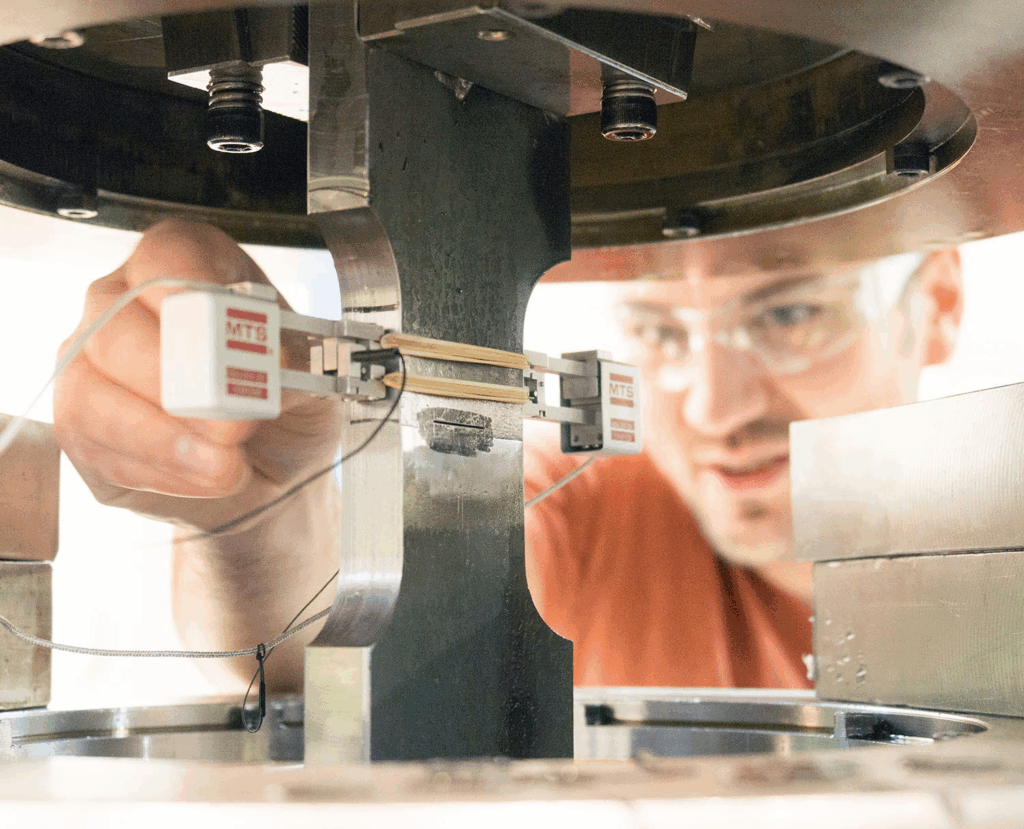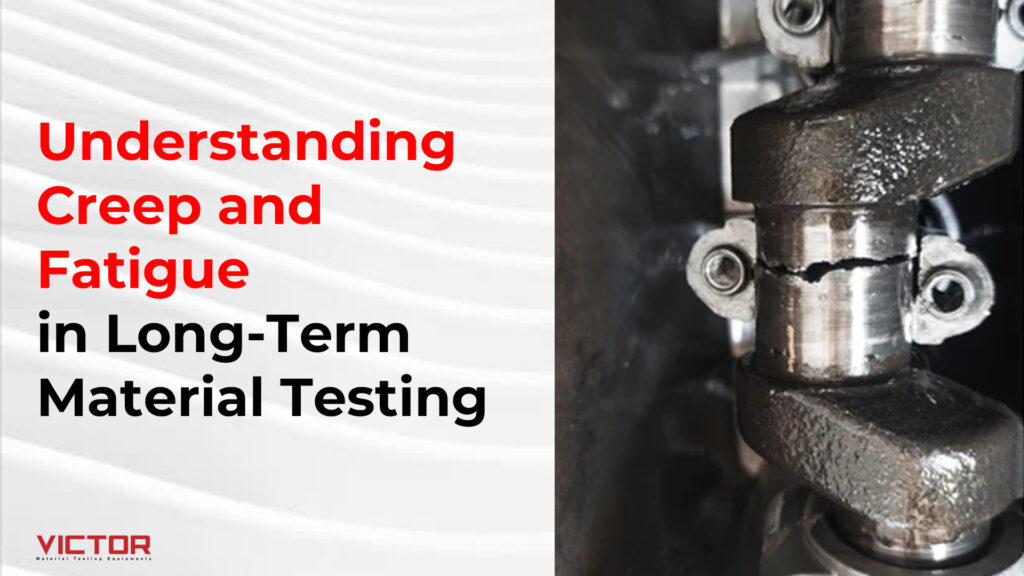Introduction
When designing products expected to last for years — whether it’s a bridge, aircraft part, or household appliance — it’s not enough to simply test how strong a material is today. What really matters is how that material behaves over time. That’s where long-term material testing comes in.
Long-term material testing evaluates how materials respond to continuous stress, strain, or environmental conditions over extended periods. Two major aspects of this type of testing are creep and fatigue. Both play a crucial role in determining a product’s service life, and in many cases, regulatory compliance and safety certifications require comprehensive long-term material testing.
What Is Long-Term Material Testing?

Long-term material testing involves subjecting materials to stress, temperature, or repetitive loading for weeks, months, or even years to simulate real-world usage. It’s not just about breaking a material — it’s about understanding how it slowly degrades under persistent conditions.
Industries such as aerospace, civil engineering, power generation, and automotive heavily rely on long-term material testing to ensure their products remain safe and functional for decades.
Understanding Creep in Long-Term Material Testing
Creep is the gradual deformation of a material under constant load over time. Even if the load is below the material’s yield strength, certain materials — especially polymers and metals at high temperatures — can deform slowly.
In long-term material testing, creep is measured by:
- Applying a constant load or stress
- Maintaining constant environmental conditions (typically elevated temperature)
- Recording deformation over time
Example:
In power plants, steam pipes operate at high temperatures and pressures. Long-term material testing helps determine whether the metal will maintain integrity under these conditions for 20+ years without failing due to creep.
Understanding Fatigue in Long-Term Material Testing
Fatigue refers to material failure after repeated loading and unloading cycles, even when the stress is lower than the yield point. Over time, microscopic cracks develop and grow, eventually causing sudden failure.
Long-term material testing for fatigue involves:
- Repeatedly applying cyclic stress (tension, compression, bending)
- Monitoring for crack initiation and propagation
- Identifying fatigue life and failure points
Example:
Automotive suspension components undergo millions of stress cycles over their lifetime. Without long-term material testing for fatigue, these parts could fail unexpectedly, endangering passengers.
Why Long-Term Material Testing Matters
The importance of long-term material testing goes beyond compliance. It helps in:
- Designing safer, longer-lasting products
- Meeting international durability standards (ISO, ASTM, etc.)
- Reducing lifecycle costs by preventing premature failure
- Supporting product warranties and performance guarantees
With Malaysia’s growing focus on infrastructure, green energy, and automotive innovation, the need for reliable long-term material testing is more critical than ever.
Industries That Depend on Long-Term Material Testing
1. Construction
Buildings, bridges, and tunnels must withstand environmental exposure and stress for decades. Long-term material testing ensures concrete, steel, and composites won’t degrade prematurely.
2. Automotive
Vehicle components such as chassis, engine mounts, and wheels undergo fatigue testing during development. Malaysian EV manufacturers especially benefit from robust long-term material testing data.
3. Aerospace
Aircraft parts are subject to high-stress cycles, especially during takeoff and landing. Long-term material testing guarantees flight safety over years of service.
4. Energy
Turbines, pipelines, and storage tanks in the oil and gas sector are all tested under creep and fatigue conditions to ensure long-term safety.
Conclusion
In an era where safety, durability, and reliability are non-negotiable, long-term material testing is a necessity. Whether you’re developing a new infrastructure project or an electric vehicle component, creep and fatigue testing help you predict real-world performance and avoid catastrophic failure.
Victor Materials stands ready to equip you with the tools you need for comprehensive long-term material testing. With the right setup, you can deliver products that stand the test of time — literally.

